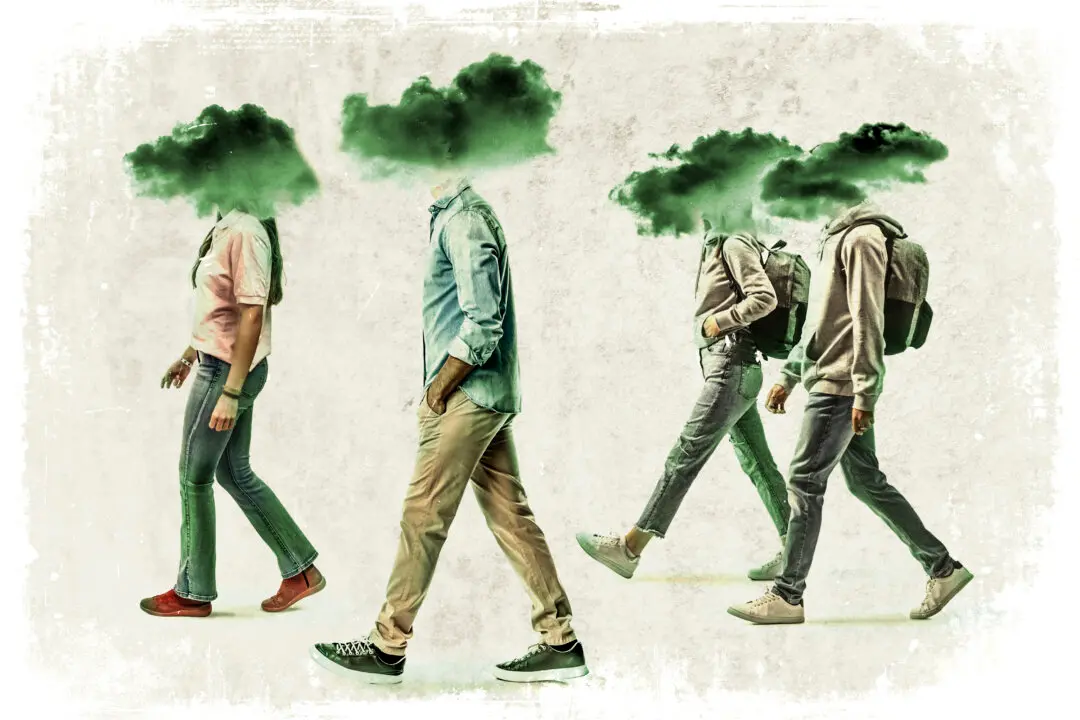News Analysis
On Feb. 29, an immigration committee hearing of the North Carolina House of Representatives got an unusual surprise.
The hearing was interrupted by three undocumented (illegal) immigrants who declared: “I am undocumented and I am unafraid.”
Asked to stop their verbal disruption, the group refused, and were then arrested. While two of the young undocumented immigrants were released, the third, 24-year-old Uriel Alberto, continued to be held.
Alberto’s situation is complicated, and among the country’s estimated 11 million undocumented immigrants, it may be increasingly common. After illegally entering the country with his Mexican family when he was just 7, Alberto grew up like many Americans do.
Alberto told local television station WGHP: “I probably live a better life here undocumented than I ever could have there. I’m grateful for being in this country. I love this country. This is my country. I consider myself a Southern boy.”
In high school, Alberto even excelled at track. “Earning an athletic scholarship to run track could’ve turned the tables for him. His coaches saw his potential. Yet, when he did earn one, he had to turn it down because of his status,” reads the bio for Alberto listed by the group that organized the hearing disruption, NC DREAM Team. “But Uriel did not give up. He persevered until he was able to enroll in college. He attended Lees-McRae College in Banner Elk.
“He even made it to the Dean’s list. Yes, the Dean’s list,” the bio stated.
If the story ended there, Alberto probably wouldn’t have to worry about deportation. Unfortunately for him, he also has a criminal record. He has a DUI (driving under the influence) on his record and several traffic violations, according to NC DREAM Team. He was also charged with assault, though it was dismissed by the person who made the charge.
President Obama has directed the federal immigration authorities to ease up on deporting undocumented immigrants, but has also had them go after deporting undocumented immigrants who have criminal records.
Even though Alberto was released last Thursday, he continues to be in deportation proceedings and will have to go before a judge who will decide his case.
Alberto said he has no regrets. “At some point, you have to stand up for what’s right. I'd do it again in a heartbeat,” he told WGHP.
Not Impressed
Some are not impressed by Alberto’s quest for immigrant rights.
Ron Woodard of the immigration reform group NC Listen was at the immigration committee hearing when the disruption occurred.
“It was not only being disrespectful, but to be illegally in our country and stand up in public and jeer legislators—if he is not deported, he is going to make a mockery of our rule of law,” said Woodard.
Woodard pointed out that the hearing actually had people speaking at it who were sympathetic to undocumented immigrants and that there was a time set aside for public comment on another day.
Woodard said that the United States is already very generous with its legal immigration and that he is pro-immigration, but anti-illegal immigration.
“What do you tell those people who are waiting in line to come to America legally? What do say them? Do you call them a chump?” Woodard said.
DREAM Act
The case of Uriel Alberto highlights a broader national debate about undocumented immigrants and how they should be dealt with: One side says bring them out of the shadows and into a society they are already benefiting; the other says stop them from taking American jobs and benefits, and get them to self deport.
Legislation like the Development, Relief, and Education for Alien Minors (DREAM) Act—which President Obama favors but was voted down by the Democrat-controlled Senate in 2010—seeks to strike a balance by giving young immigrants like Alberto the chance to earn citizenship through going to college or serving the uniformed services for at least two years.
A similar pathway to citizenship already exists for undocumented immigrants serving in the U.S. military.
A problem with the DREAM Act, critics have said, is that it would only attract more immigrants to illegally flock to the United States. After a young undocumented immigrant earns citizenship, he or she could then begin getting citizenship for undocumented family members, undermining the legal immigration process already in place.
U.S. Senator Marco Rubio (R-Fla.)—whose parents are Cuban immigrants and who is considered a likely vice presidential pick for Republicans—has proposed an approach that would give legalization, but not citizenship, to undocumented immigrants.
“You can legalize someone’s status in this country with a significant amount of certainty about their future without placing them on a path toward citizenship,” Rubio told Geraldo Rivera on 77 WABC.
Such an approach would potentially keep someone like Uriel Alberto in the country and help him integrate into society without giving him citizenship rights like voting or the ability to make his family members legal.
Sen. Rubio said legislation will be forthcoming from his colleagues in the Senate.
“I do think there are changes that can be made to the concept of the DREAM Act that will make it acceptable and get it passed, and that’s what I hope to be a part of,” Rubio said.




